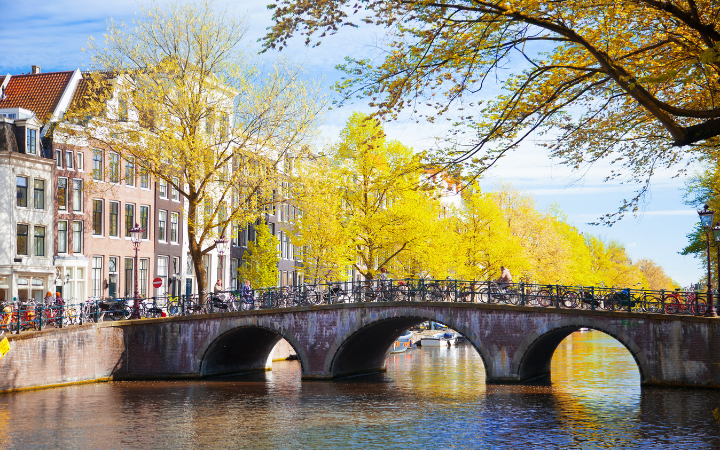
My Expat Life In Thailand, 5 Things You Should Know Before You Relocate

When I meet people for the first time and tell them that I live in Thailand, their first reaction is “wow, that’s amazing!”. Thailand is a beautiful country for sure, with delicious (very spicy) food and wonderful beaches.
While sipping a coconut on a beach and working remotely appeals to everyone, the steps to get there require preparation and careful planning.
Those of you that have relocated before will certainly agree. If you haven’t and if you are considering a relocation to Thailand (or to other countries for that matter), then read the following steps that will help you prepare.
Thailand is not my first relocation so you could say I am used to it, however moving to a new country can be daunting because you just don’t know where to start and how to list your priorities. There are many things that we don’t know we need to research when we want to move to a new country but understanding the public systems and services available will make a huge difference. There is so much information available out there that you may read conflicting explanations about visas for example, so even though research is very important, using your connections and network is even more so. I’ll also be biased here and suggest using a relocation coach 🙂
Here is a quick snapshot of the first things you must consider and create a plan for:
HEALTHCARE:
Make sure you get health insurance and that you know what it covers EXACTLY. In Bangkok, most healthcare visits happen at hospitals (GPs or general practitioners are in hospitals for example), except for some dental practices and private beauty clinics. Thailand has long been a world leader in medical tourism, so you can expect affordable and reliable healthcare, especially from private hospitals.
https://www.lumahealth.com/guides/thailand/guide-to-hospital-thailand/
ACCOMMODATION:
The first consideration here is – how long are you planning on staying in Thailand ? If you are thinking of shipping your furniture, make sure you get an idea of what houses or apartments are like where you are moving to. Consider different countries have different size homes, doorways and stairwells so find out if your furniture will fit. If it won’t, you may want to consider selling it or putting it in storage for the first rental term (6 months, a year, etc).
Fun fact: when I lived in Hong Kong, I first went to Ikea before realizing that I had to measure every single wall of my shoe box-shaped condo because I had no clue whether the furniture would actually fit!
Look at some online rental websites to get an idea of what rental costs are like. In Thailand, some condominiums include pool(s) and/or gyms as well as ad-hoc services (mine has a tuk tuk to drop us off at the nearest subway station). But you can also rent houses and those without pools can be considerably cheaper than the condos. You can look at websites such as https://www.thailand-property.com/properties-for-rent/bangkok or https://www.bangkokfinder.com/ however joining Facebook groups will also help as the expat community can put you directly in touch with agents.
SCHOOLS:
Choosing a school based on your budget is also something you have to have to look into if you are moving with kid(s). If it is your first time registering your kid(s) to an international school, you will want to consider additional expenses such as entrance tests and after-school activities. The international schools in Bangkok can be expensive, especially if you have to incur the costs yourself. The best solution here would be for an employer to cover the school fees.
Check out https://www.international-schools-database.com/in/bangkok or https://internationalschoolsinbangkok.com/ for more information.
COST OF LIVING:
Aside from international school fees, the cost of living in Thailand is relatively low. You can find amazing street food everywhere for $3 USD (about 2.5€) or even less. Of course, dining in restaurants will be more expensive and cities will also be pricier than remote areas. I’ve seen the price of coconuts ranging from 20 THB ($0.6 or 0.5€) at a local market, up to 150 THB ($4.6 or 4€) at mid-high end hotels.
I’d also recommend referring to https://www.numbeo.com/cost-of-living/ or https://www.expatistan.com/cost-of-living to compare cost of living between two cities.
TYPES OF VISAS:
The types of visas available will vary depending on your nationality and length of stay. I’d recommend using your home country’s Ministry of Foreign Affairs website to get accurate information or the government website of the host country you are interested in. Visa requirements and costs may also change from year to year, so make sure you have all the right paperwork and method of payment needed before flying. For example, if you’re flying on a tourist visa to Thailand, you will need to show proof of another flight exiting the country, upon checking in to your flight to Thailand. Here is the website for Thailand’s Ministry of Foreign Affairs: https://www.mfa.go.th/en/index
Whether you’re relocating with the support of your company or on your own, the list of things to consider will be pretty much the same.
As a recruiter, I’ve helped countless candidates relocate across the globe. That’s why I am well positioned to support our clients at Allora Collective who need support negotiating their salary job offers abroad, relocate and/or settle in their new country.
Reach out if you are one of those individuals and we’ll start planning your move together.




